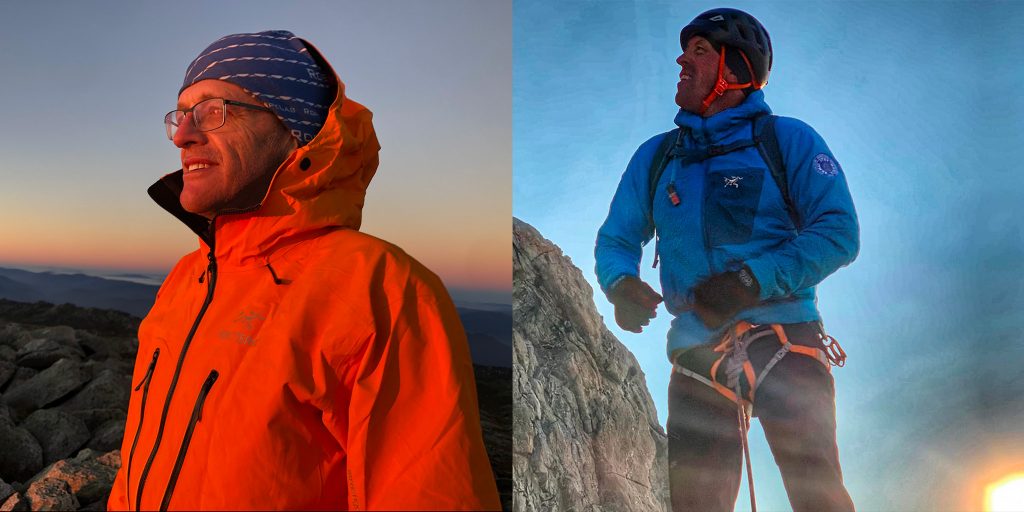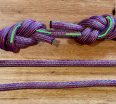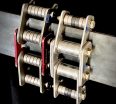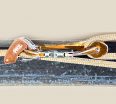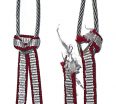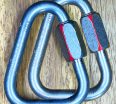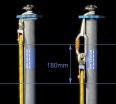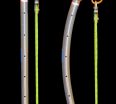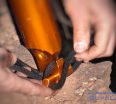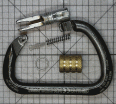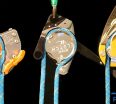31 Jul – 4 Aug 2023, Petzl Technical Institute, Salt Lake City, Utah, USA
Description: Open enrolment class for people with high pre-existing knowledge and skill set in rope rescue operations. This training will focus on the choices backcountry rescue teams may be able to make when moving and operating in remote areas. The systems presented will predominantly be built with 8 and 9.5mm ropes. The program will be a 50/50 mix of theory and practice. The theory component will work up to the understanding required to justify the use of reduced weight systems and to determine what factor of safety they offer and correctly identify any compromises.
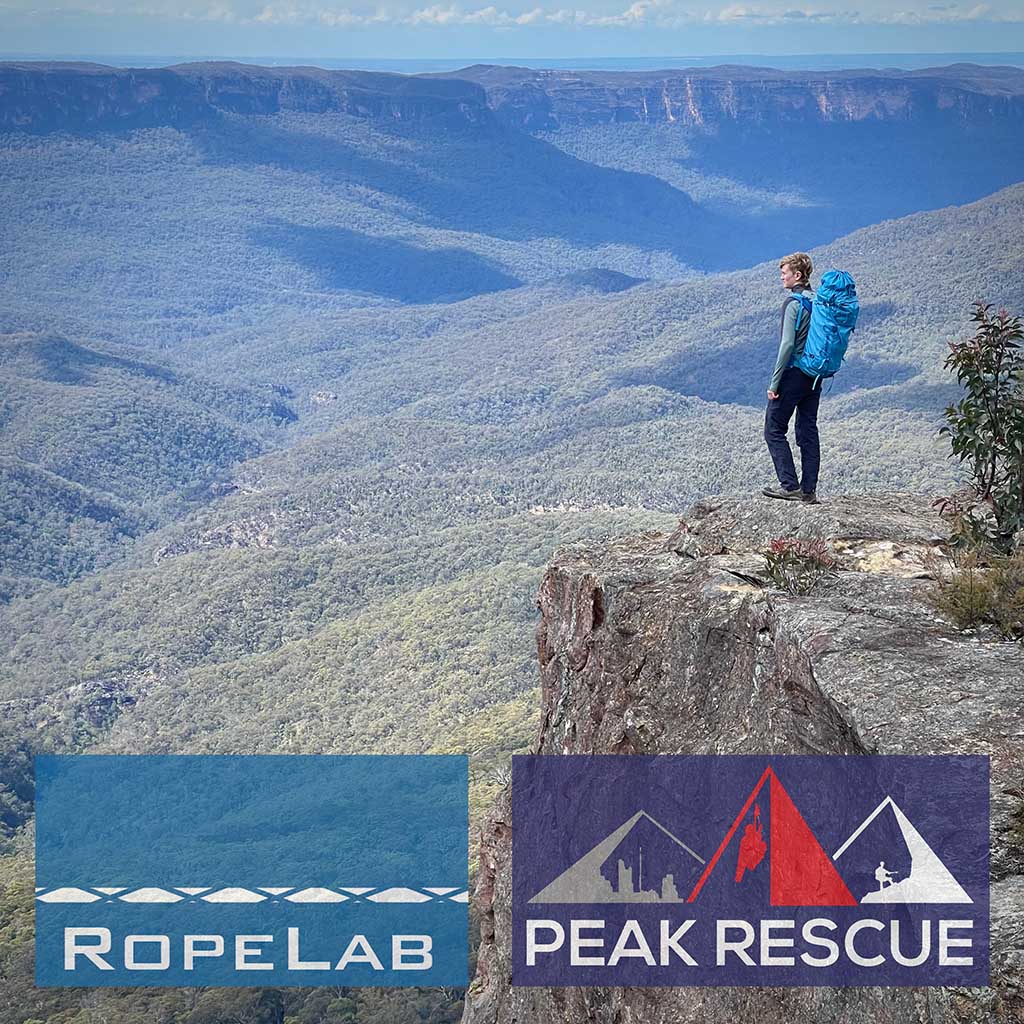
Schedule: 5 days, Monday 31st July – Friday 4th August 2023.
Cost: $US 1,600 each
Location: Petzl Technical Institute, 2929 Decker Lake Dr, Salt Lake City, Utah 84119 https://petzlsolutions.com/about
Registration: First come-first served. Please send an email expressing your interest to richard@ropelab.com.au – on receipt, we will send you an invoice with the details of options for payment.
Note: Please include the full details of who the invoice should be issued to in your email.
***NOTE: We have names against all available places however not all have paid yet. We will set up a wait list (once full) and offer places as they become available.
DISCLAIMER: This workshop is not a Petzl event – it is being hosted by RopeLab and Peak Rescue.
Content
This workshop will introduce and explore some of the physics that can underpin a deep understanding of many of the techniques used by roping technicians. Theoretical and practical sessions will focus on equipment, knots, ratings, friction, and mechanical advantage and will explore some of the misconceptions that are commonly taught as fact.
One of our greatest challenges lies in selecting and using the most appropriate equipment for any task.
When it comes to choosing between team rescue and partner rescue gear, it’s important to consider the nature of the mission and the size of the team. For larger groups, team rescue gear may be the way to go as it allows for multiple rescuers to work together in a coordinated effort. However, for smaller groups or solo missions, partner rescue gear may be more suitable as it allows for quick and efficient self-rescue in case of emergency.
Vehicle based vs. remote operation, aluminium vs. steel hardware, 40kg tripod vs. 2kg gin pole, 11mm vs. 6mm rope, full-body vs. climbers’ sit harness, nylon vs. polyester vs. aramid rope.
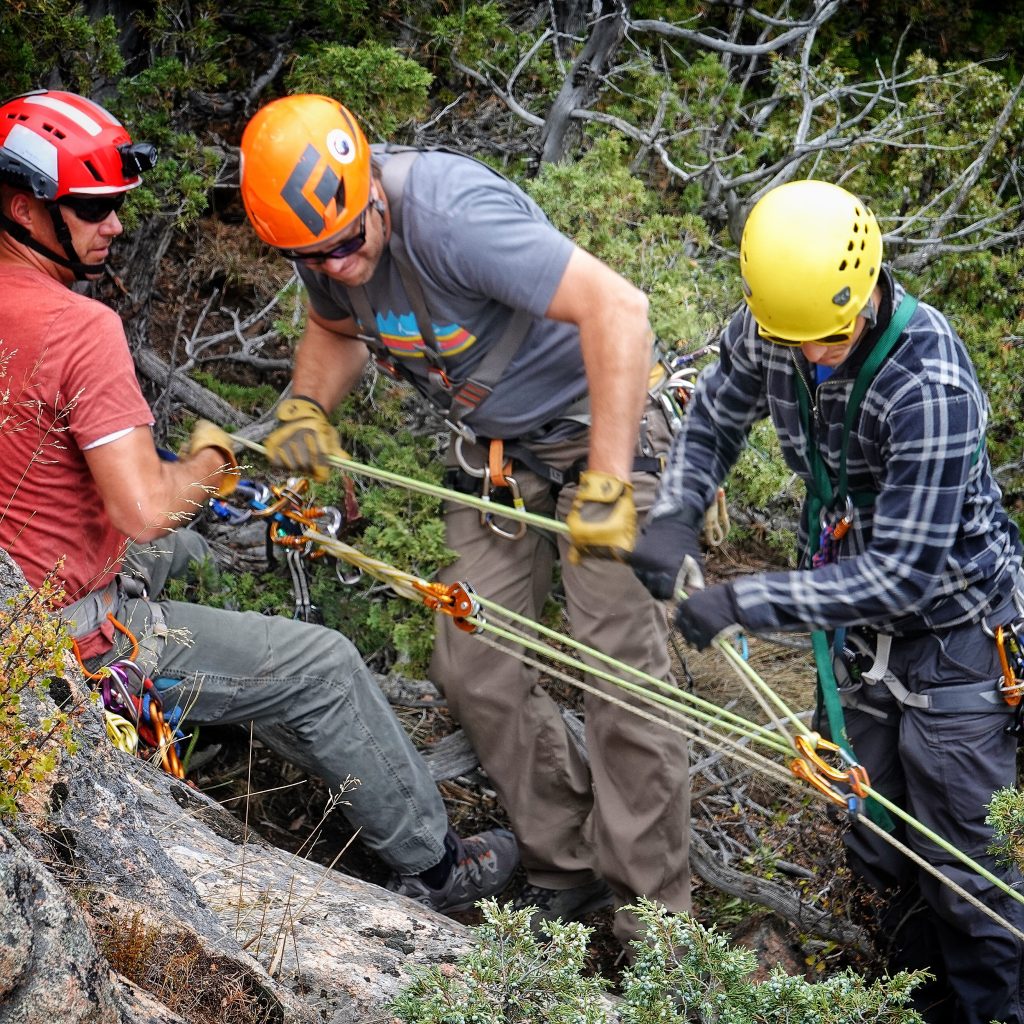
Tripods and gin poles are becoming more common because they are excellent tools for managing loads in complex environments. One of the key themes for this workshop will be that Gin Poles are the ultimate teaching tool for Artificial High Directionals. If we understand the theory of tensile and compressive forces and how they act then it is relatively straight forward to work with Gin Poles. Once these basics are established, other multi-legged and guyed structures seem simple. Learn how to set up and use these tools and to recognise and manage the additional hazards they introduce.
There will be a healthy mix of theoretical and practical sessions presented both inside and outdoors. Sessions will include but not be limited to the following areas:
- Underpinning physics and theory
- System design and use of load cells
- Dual Main rope systems
- Vertical mobility
- Use of a range of high directionals
- Use of lightweight equipment in rigging and rescue.
In summary, this workshop aims to help you better assess your needs and choose the gear that best fits your situation for a successful and safe rescue.
While there will be no formal assessment of skills or understanding, we can provide you with a Certificate of Attendance to support your professional development requirements.
Presenters
This workshop will be co-presented by Richard Delaney (RopeLab) and Micah Rush (Peak Rescue).
